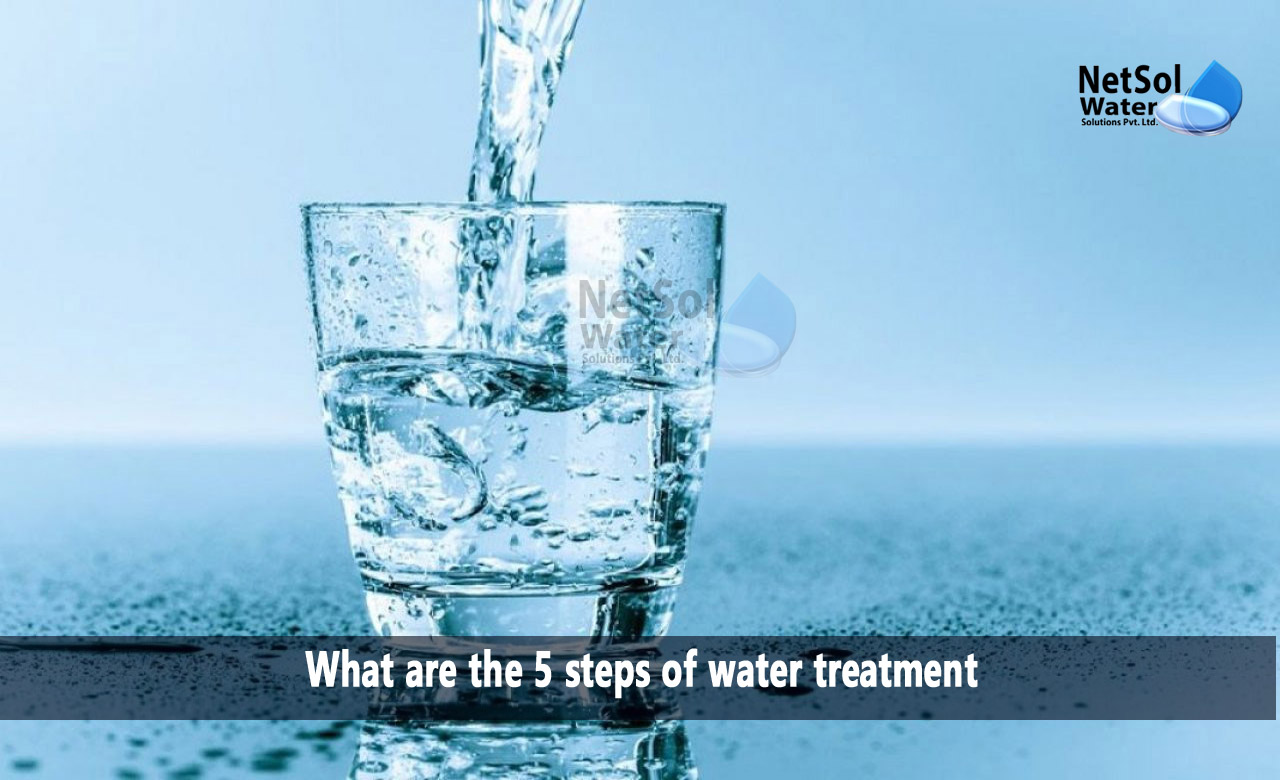Water treatment is the process of enhancing the quality of water so that it can be used for a certain purpose. Drinking water, industrial water supply, water recreation, and restoring environmental resources like rivers and lakes, are the most typical end uses of treating water.
Let’s understand the importance of water treatment and its main treatment steps.
Why is water treatment important?
Humans require clean water as a basic necessity. The need for water rises along with the human population. Water is a limited resource, hence, used water needs to be treated in order to continue serving end uses.
Herein, lies the significance of water purification systems.
Water treatment helps make water clean, safe to drink, and used for other uses by eliminating pollutants and dangerous compounds from the water. Tragically, approximately 2 billion people worldwide utilize untreated water for drinking, or obtain their water from unreliable or contaminated sources. It is possible to intervene in these circumstances and stop incidents caused by unsafe water, such as water-borne illnesses and fatalities, by having procedures in place to enhance water quality.
However, water treatment can also help to ensure that water is returned to the natural cycle. Water can be safely returned to environmental sources like rivers, lakes, and seas as one of the process's final applications.
Of course, in order to prevent contamination and other environmentally hazardous problems like water pollution, water treatment facilities must first make sure that the water is free of harmful contaminants.
Process of water treatment
Water supplies, whether for household, commercial, or industrial usage, are often collected, treated, and distributed by water treatment plants. These facilities may use slightly different procedures around the world for their water treatment systems. However, regardless of the end goal they are trying to attain, all of their strategies are built on comparable steps.
What are the five steps of water treatment?
The Center for Disease Control and Prevention (CDC) state that there are 5 main processes, in the total water treatment process particularly for public water systems:
· Coagulation
Coagulation is the initial step in the treatment of water. This entails introducing chemicals to the water that have a positive charge, which should balance out the negative charge of the dirt and other dissolved materials. Iron and some kinds of salt are examples of such substances.
· Flocculation
This procedure is gently combining the water to produce flocs, which are larger, heavier particles. The majority of the time additional chemicals are added to the water, to make it easier for the flocs to form.
· Sedimentation
Once flocs have formed, they sink to the bottom of the ocean due to their weight. Sedimentation is one of the procedures used by water treatment facilities to separate the solids, such as flocs, from the water before moving on to the next stage.
· Filtration
The process of separating particles from the water by filtration is repeated once more. Now, the separated, pure water on top goes through filters made of various materials, including sand and gravel, with differing pore sizes. In the end, the purpose of these filters is to aid in the removal of water contaminants and dissolved particles.
· Disinfection
Any leftover bacteria, viruses, and parasites must be removed during this stage. One or more chemical disinfectants, such as chlorine or chlorine dioxide, can be added to water to achieve this.
Chemical disinfectants help remove any leftover unwelcome germs before the water reaches the intended end-use, ensuring water safety as it travels from the water treatment facility to homes and businesses.
What occurs to water once it has been treated?
In order to be reused for a variety of uses, treated water is discharged into nearby waterways. These can include meeting home needs, providing drinking water, and being used in industrial and agricultural processes. A pressurised network of lifts and pipes can be used to discharge or release treated water to multiple locations.
Choose the best providers of water treatment plants in India!
At Netsol Water, we are committed to providing high-performing water and wastewater treatment systems, to assist commercial and industrial enterprises with their treatment requirements. We have earned a reputation for providing top-notch service and water treatment solutions, which will help our clients lower operating expenses and increase the life of their equipment.
Every purchase of these systems includes installation, manufacturer's warranty, and a 24-hour customer service after the sale. You can reach us via phone at +91 9650608473 or drop a mail at enquiry@netsolwater.com for additional information.



